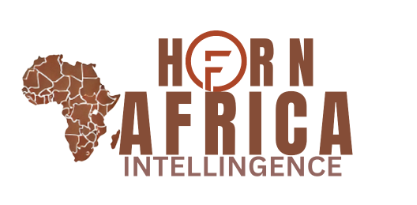A peacekeeping mission in Somalia is set to be discussed in two major meetings, one in Addis Ababa, Ethiopia, and another in Doha, Qatar, on the 24th and 25th of February. These discussions will bring together key stakeholders involved in the African Union’s new support and stabilisation mission in Somalia (AUSSOM), marking a significant step in the ongoing efforts to strengthen Somalia’s security and promote long-term peace in the Horn of Africa. The mission aims to provide extensive support to the Somali government as it navigates a range of complex challenges, from battling entrenched militant groups to addressing internal political divisions.
A critical meeting bringing together all the parties involved in the African Union’s new support and stabilisation mission in Somalia (AUSSOM) is set to take place on the 24th and 25th of February in Addis Ababa, Ethiopia. This pivotal gathering marks a key milestone in the ongoing efforts to strengthen Somalia’s security landscape and foster sustainable peace within the Horn of Africa.
AUSSOM, a mission spearheaded by the African Union (AU), is designed to provide extensive support to the Somali government as it grapples with a host of challenges, from entrenched militant groups to internal political divisions. At the heart of the mission is the imperative to stabilise the country, promote reconciliation, and create a conducive environment for socio-economic development.
Launched in response to the growing threat posed by terrorist organisations like Al-Shabaab and the fragile security situation in Somalia, AUSSOM aims to build on the successes of its predecessor, AMISOM (African Union Mission in Somalia), which has been instrumental in battling insurgents and supporting the Somali National Army. The mission’s overarching goal is not only to maintain security but also to bolster the Somali government’s capacity to govern effectively.
AUSSOM’s arrival is critical at this juncture, given that Somalia has faced decades of instability since the collapse of the central government in 1991. With the support of the African Union and the international community, Somalia’s government has made notable strides toward rebuilding institutions and reclaiming territories from militants. However, the challenges are far from over, and AUSSOM will play a central role in securing long-term peace and stability for the Somali people.
The upcoming summit will focus on ensuring a coordinated approach to the mission’s implementation and will provide an opportunity for all stakeholders to address the mission’s framework, strategy, and specific mandates. Among the key topics on the agenda are operational coordination, financial support, troop deployments, and humanitarian aid provisions.
The meeting will bring together a diverse group of stakeholders, each playing a crucial role in shaping the mission’s success. The key participants include the African Union Commission, Somali government officials, representatives from the United Nations (UN), the European Union (EU), and various bilateral partners involved in Somalia’s recovery.
The Somali government, led by President Hassan Sheikh Mohamud, has emphasized the need for a comprehensive approach to security. AUSSOM is expected to focus not only on counter-terrorism but also on strengthening the capacity of Somali security forces, promoting good governance, and ensuring that the country’s recovery is inclusive. Somalia’s National Security Council, led by the president, is expected to provide input on how best to address the complex security and governance challenges the country faces.
For the African Union, AUSSOM represents a critical strategic shift from previous peacekeeping efforts to a more nuanced mission focused on supporting state-building and stabilisation. The African Union Peace and Security Council (AUPSC) will be closely involved in the discussions, particularly on the specifics of troop deployments and logistics. The mission will also require substantial funding, and financial institutions like the AU’s Peace Fund and international partners such as the EU will be key players in providing necessary resources.
Meanwhile, the United Nations will continue to be an important partner, with the UN Assistance Mission in Somalia (UNSOM) contributing expertise and support, especially in political and humanitarian sectors. The UN’s involvement underscores the international community’s commitment to ensuring that the mission’s objectives align with broader UN goals of peacebuilding and human rights.
One of the most pressing objectives of AUSSOM is to assist Somalia’s transition from reliance on international military support to a more self-sufficient and effective security framework. For the African Union, the mission is about fostering sustainable peace. This includes training and equipping Somali security forces, particularly the army and police, while also promoting political dialogue among Somalia’s fractious political leaders.
AUSSOM will also provide humanitarian support to Somali communities affected by violence, displacement, and ongoing conflict. The mission will prioritise addressing the needs of refugees and internally displaced persons (IDPs), as well as facilitating the delivery of vital aid to remote areas under militant control. This humanitarian focus is essential in ensuring that the mission does not become solely military but remains deeply connected to Somalia’s civilian recovery.
The mission is also expected to assist with the political process, helping to mediate peace talks between the government and opposition factions. This will be crucial in tackling the political divisions that often exacerbate the country’s security issues. By supporting inclusive political dialogue, AUSSOM hopes to ensure that all Somali communities feel represented in the country’s governance structures, which is essential for long-term peace and stability.
The situation in Somalia has far-reaching implications for the entire Horn of Africa. Instability in Somalia has repercussions not only for neighbouring countries but for the broader international community. Al-Shabaab, which has links to al-Qaeda, continues to wage a brutal insurgency in Somalia, with attacks spilling over into neighbouring Kenya, Ethiopia, and other countries. The ongoing instability also exacerbates the humanitarian crisis, creating regional refugee flows that affect countries across East Africa.
AUSSOM’s mission will have significant implications for regional security and cooperation. Ethiopia, which shares a long border with Somalia, plays a key role in regional security and has been a staunch ally of Somalia in the fight against Al-Shabaab. As a result, Ethiopian military and political leaders will likely be closely involved in the discussions. Likewise, Kenya, which has hosted numerous Somali refugees and dealt with cross-border terrorist threats, is expected to be an active participant in the talks. The commitment of these neighbouring countries to Somalia’s stability is essential to the success of AUSSOM.
The upcoming two-day meeting in Addis Ababa is expected to yield significant progress on key aspects of the AUSSOM mission. There will be discussions on the mission’s timeline, logistical operations, and detailed implementation plan. Given the dynamic security environment in Somalia, the meeting will also address the coordination of the mission with the Somali government and international actors to ensure that it remains flexible and adaptable to changing conditions on the ground.
As Somali and regional leaders prepare to gather in Addis Ababa, there is cautious optimism about the prospects of AUSSOM. While challenges remain, the mission represents a critical step in Somalia’s long journey toward peace and stability. The international community’s unwavering support for AUSSOM will be key to the success of this ambitious and multifaceted effort to restore stability to Somalia and the Horn of Africa at large.
The stakes are high, and all eyes will be on Addis Ababa in the coming days as stakeholders work to chart a course for a more peaceful and secure Somalia.











